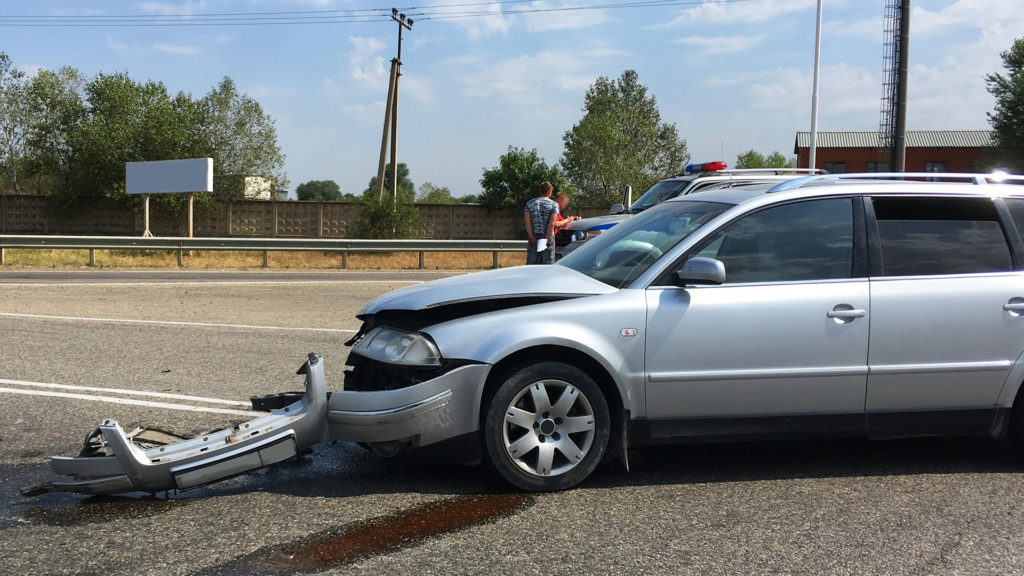How to handle a hit-and-run car accident? Answers from a California accident attorney
What should you do if you are the victim of a hit-and-run accident? The aftermath of any car accident an event can be jarring, disorienting, and catastrophic. The nature of a hit-and-run adds insult to injury, now leaving you without knowing the identity of the reliable party – and possibly struggling to contact emergency services.
In the best-case scenario, all vehicles pull out of traffic, create an accident report with the police, exchange information, and allow for the typical recovery process to be handled by insurance adjusters. In situations where one vehicle is still operable and the driver has an incentive to flee (such as outstanding warrants, driving without a license, driving intoxicated, or possibly a panic episode), the densely populated areas of California and the Inland Empire can make it difficult to identify the driver and vehicle after the fact.
Imagine being on the road, driving attentively with your destination in mind. The radio is turned on, perhaps a talk show or music station, playing quietly. You’re enjoying the drive, looking ahead at the road and traffic. Suddenly, another car comes out of nowhere and slams into you, sending your car spinning out of control. Your car is now pressed against the center divider which is comprised of a cement barrier called k-rail, airbags deployed, and engine no longer running. In a daze, you see another car driving off, not sure the model or type of car, or even the color.
This type of accident is referred to as a hit-and-run, for obvious reasons. A hit-and-run accident is defined as an accident in which one or more drivers leave the scene of the accident without exchanging information or contacting authorities. In California, drivers who leave the scene of an accident can face serious legal penalties, including jail time and fines.
Here are 5 things you should do if you are ever involved in a hit-and-run:
1. Contact Emergency Services
Call for police and medical transport. While the police are not able to catch many hit-and-run offenders, you will still need to have an accident report created. You will eventually need the report for your claim, particularly in a hit-and-run. If you are injured or feel you may have an injury, it is important to get medical treatment as soon to the date of the accident as possible and have your injuries documented.
Even if you don’t believe you were hurt, have a doctor or other medical expert examine you and document any injuries. This is another stage that is important if you want to seek compensation for injuries or medical expenses later on.
2. Attempt To Identify The Driver
The first thing to do is try to ID the other driver or their vehicle, however, do not chase them. While you should take any steps you can, taking a picture or video, or making notes while the memory is fresh, leaving the scene of the accident could compromise your claim. Getting security camera footage from local businesses may be a vital resource for this, and an attorney can help you get it.
3. Document the Accident & Surroundings
This is an important thing to do before you leave the area for medical treatment. Be sure you take ample pictures of the scene of the accident, the surroundings, and more. Document everything you can, you never know what will be of use, and you won’t get another chance.
4. Understanding the Hit-And-Run Claims Process in California
California is an at-fault state and if unable to identify the other party, you will most likely utilize the uninsured motorist claim process if your auto insurance covers it. While coverage limits for uninsured motorist claims are often minimal and will not cover everything, it is a starting point and can give you some protection. Additionally, through the hit-and-run process, your damages will generally be broken down into economic and non-economic damages.
5. Get Experienced Legal Help
A successful strategy for building a solid case in the wake of a hit-and-run incident is to hire an experienced personal injury attorney. Not only do they have a wealth of knowledge about the claims process, but they will also function as your negotiator and personal advocate when dealing with your insurance company. Contact Harsh Law today at (909) 793-6261 for a free consultation to answer your questions and evaluate your case.



